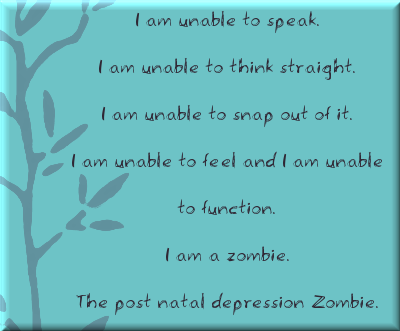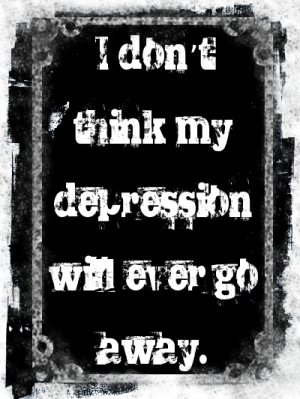 One of the least discussed aspects of the Postpartum Mood & Anxiety Disorder experience involves intrusive thoughts. Those of us who struggle with these nasty beasts are afraid to admit to them because we fear it will result in our children torn away from us. Some of us fear these thoughts mean we’re stricken with Psychosis. So we suffer silently until they have faded into the distant past.
One of the least discussed aspects of the Postpartum Mood & Anxiety Disorder experience involves intrusive thoughts. Those of us who struggle with these nasty beasts are afraid to admit to them because we fear it will result in our children torn away from us. Some of us fear these thoughts mean we’re stricken with Psychosis. So we suffer silently until they have faded into the distant past.
Intrusive thoughts are not Psychosis. Instead, they are more closely related to Postpartum Obsessive Compulsive Disorder. Women who struggle with Intrusive thoughts are immediately horrified by their thoughts which involve harming themselves, their infants, or harm coming to either of them. They are violent flashes which jet through our brains. We are unable to control them. They leave as quickly as they arrive. Psychosis on the other hand, involves thoughts which make logical sense to the person having them regardless of the lack of logic. There may be auditory hallucinations, visual hallucinations, and a belief that if these actions are not followed through, a worse harm will swoop down upon the affected parties. Psychosis is a medical emergency. No mother suffering with auditory or visual hallucinations should ever be left alone with her infant and should be placed in medical care immediately. ER, people. Immediately.
In today’s Postpartum Voice of the Week Post, the author explores her experience with intrusive thoughts. She describes how severe intrusive thoughts can lead to OCD (which they did in my case as well) and mentions Emma Pillsbury from Glee but digresses to point out: “But let me tell you that in real life, coping with intrusive thoughts is not cute and fun like an episode of Glee.”
Coping with intrusive thoughts can be exhausting. It wears you down. Leaves little energy for the end of the day when you finally get baby down to sleep for the night. All day, you’ve waged a battle in your mind with an army of flashing horrific pictures and thoughts. So you sit on the couch like a zombie, exhausted, yet unable to sleep. Many moms I know use mental imagery to stop the thoughts – picturing a stop sign for example – or going to a happy place. Others distract. I know for anxiety I force myself to count backward from 100. In Spanish. I speak enough Spanish to be able to do this but it really forces me to think and distracts me from the issue at hand. I also use music.
At the end of her post, the author asks, “Have you ever battled any of the postpartum trifecta: depression, anxiety, or intrusive thoughts? What helped you to cope?”







